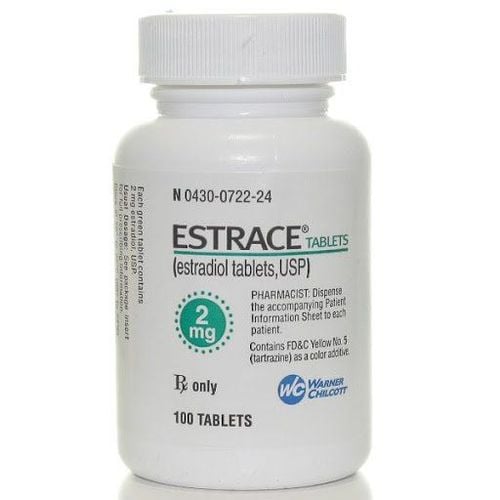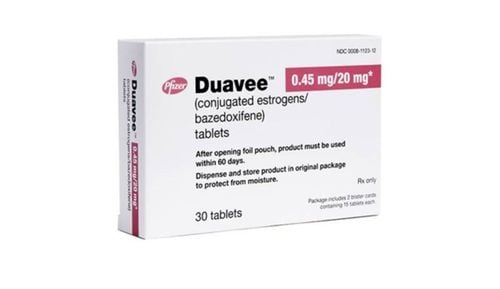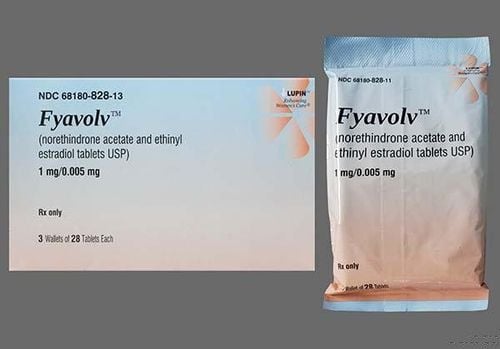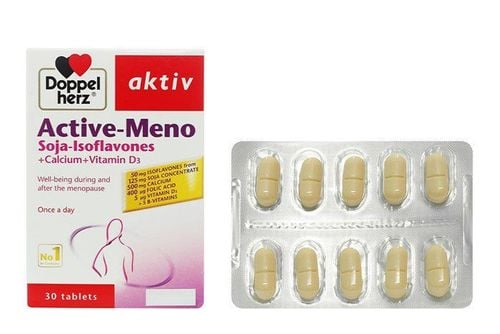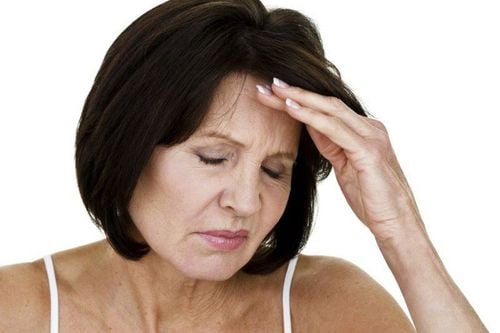This is an automatically translated article.
The article was professionally consulted with Specialist Doctor I Le Khac Hieu - Obstetrician and Gynecologist - Department of Obstetrics and Gynecology - Vinmec Ha Long International General Hospital.1. What is a flare?
Hot flashes are sudden sensations of heat that begin with a burning sensation in the face and sweating. The exact cause of hot flashes is unknown, but it may be related to changes in estrogen levels. People with hot flashes often start with a burning sensation in the face, then quickly spread to other locations, accompanied by sweating. Some women have hot flashes, accompanied by rapid heart rate, chills...Hot flashes often occur while you are sleeping, wake you up and cause insomnia. You often wake up drenched in sweat.
Here are some common symptoms in people with hot flashes , including:
Faster-than-normal heartbeat Hot flashes, sweating, flushed face Uneven sensation of heat and cold, sometimes accompanied followed by chills all over the body Feeling hot flashes at night, hot flashes cause insomnia Hot flashes usually last for 2-3 minutes, then you will feel extremely uncomfortable, restless, tired tired.

2. How long do hot flashes last?
The intensity of hot flashes is often variable, they are not fixed. Hot flashes start in the face and change the whole face, then spread to other parts of the body with sweating. Everyone has a different frequency of hot flashes. There are people who are constantly present and very uncomfortable, there are people who only have an occasional bout. Hot flashes can occur before menopause and persist for up to a decade.Hot flashes are a major cause of chronic insomnia because they often happen while you're sleeping. At night, hot flashes keep you awake and sweaty. During the day, hot flashes affect your life and activities.
Plus, as women enter menopause, hot flashes are more likely to be followed by depression. These subjects also often experience primary sleep disturbances.
About 2 in 10 women never have hot flashes. Others only appear for a short time. In addition, there are some cases where people have hot flashes that last for more than 10 years or even more. However, on average, women experience hot flashes or night sweats for about 7 years.
3. What to do to prevent hot flashes?
You can't prevent hot flashes from occurring during menopause. However, you can stay away from triggers that make hot flashes more frequent and more severe, including:Caffeine

Besides, it is necessary to follow a reasonable and healthy diet, eliminate greasy, hot and spicy foods to limit hot flashes becoming serious. Women also need to eliminate stimulants such as beer, alcohol ... when hot flashes appear at night.
Keeping mentally stable, mentally comfortable is essential to limit the outbreak of hot flashes. You can listen to music, watch movies, do yoga....help improve your mood. At night, you should set the right temperature to reduce the room temperature, in addition, you should not wear tight clothes to avoid discomfort and discomfort.
Try deep breathing (6 to 8 breaths per minute). Practice deep breathing for 15 minutes in the morning, 15 minutes in the evening, and at the onset of the first sign of hot flashes.
Daily exercise like walking, swimming, biking and dancing are all good options for women with hot flashes. Plant-based estrogens, found in soy products, can help reduce hot flashes. Doctors recommend choosing foods made with soy like tofu instead of taking supplements. Some studies show that black cohosh can have a positive effect for at least 6 months. Using herbs can have side effects or change the effects of medications you're taking, so consult your doctor before taking them.

4. Hot flashes treatment
Some hot flashes don't need treatment and go away on their own.If hot flashes bother or trouble you, you should talk to your doctor about hormone replacement therapy (HRT) for a limited time, usually 5 years. This measure helps prevent hot flashes in many cases.
Plus, it can help improve other menopausal symptoms, including vaginal dryness and mood swings.
When you stop taking HRT, hot flashes may return. Some short-term hormone replacement therapy can make you more susceptible to blood clots, breast cancer, endometriosis, and cholecystitis.
If HRT isn't right for you, there are other treatment options that can help reduce the impact of hot flashes. Some of the medications prescribed by a doctor include: Low-dose antidepressants such as fluoxetine (Prozac, Rapiflux), paroxetine (Paxil, Pexeva) or Venlafaxine (Effexor). Clonidine, a blood pressure medication Gabapentin, an antiepileptic drug Britorelle, a paroxetine formulation specifically for hot flashes Duavee, a conjugated estrogen/bazedoxifene formulation designed to treat hot flashes

Currently, Vinmec International General Hospital has a package of pre-menopausal health examination and counseling. When registering for an examination package, customers will be examined and consulted with a specialist in Gynecology; Perform tests to assess hormonal status such as:
Gynecological examination Gynecological examination, breast examination Transabdominal ultrasound of uterus and ovaries Taking samples for cervical-vaginal cytology Mammogram (2 sides) Osteoporosis Measurement Perform other tests to detect premenopausal conditions, if any.
Please dial HOTLINE for more information or register for an appointment HERE. Download MyVinmec app to make appointments faster and to manage your bookings easily.
Reference source: webmd.com




